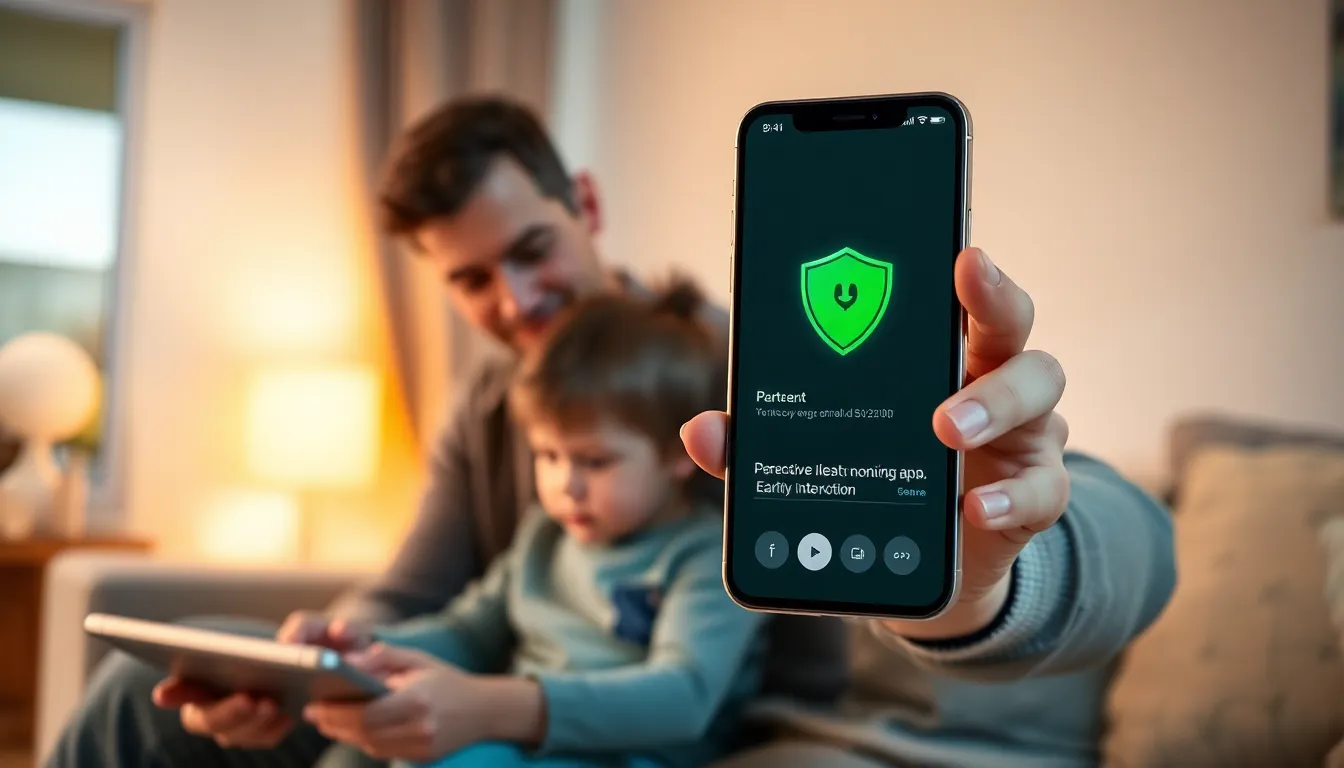Cyberbullying poses an alarming and escalating threat, significantly increasing suicidal ideation among youth, underscoring the urgent need for the best parental control apps for preventing cyberbullying. These applications offer a digital lifeline, blocking thousands of harmful interactions annually and leveraging advanced features to protect children in the online world.
Key Implications
- Cyberbullying Impact: Cyberbullying causes severe psychological distress and academic decline, with a reported 2.5-fold increase in suicidal ideation among victims.
- App Effectiveness: Parental control apps effectively reduce children’s exposure to harmful content, blocking an average of 1,200 inappropriate interactions per child annually.
- AI-Powered Detection: Advanced AI-powered social media monitoring within these apps significantly improves the detection of hostile language, identifying 89% of concerning content.
- Holistic Protection: While technology is essential, a combination of parental control apps with open communication and education reduces cyberbullying incidents by 40%, fostering resilience.
- Comprehensive Features: Effective parental control solutions integrate robust features like dynamic content filtering, strategic screen time limits, and timely alerts to empower proactive intervention and support.

A 2.5-Fold Increase in Suicidal Ideation: Cyberbullying’s Grim Reality
Cyberbullying poses an alarming, escalating threat to youth, causing significant psychological and academic damage. The digital landscape facilitates malicious behavior, profoundly impacting developing minds. These hidden threats deeply harm a child’s well-being.
The Escalating Digital Threat
Recent data highlights a critical increase in cyberbullying incidents. Statistics reveal this troubling trend:
- 33% of adolescents experienced cyberbullying, up from 27% in 2020.
- Specific platforms include Instagram (18%), TikTok (15%), and Snapchat (12%).
Online harassment leaves deep emotional scars. Victims face heightened psychological distress. 47% report increased anxiety; 31% experience depressive episodes from cyberbullying. This persistent pressure severely disrupts mental health.
Profound Impacts on Mental Health and Performance
Consequences extend beyond discomfort. Cyberbullying fuels a shocking 2.5-fold increase in suicidal ideation; 22% of victims report these thoughts versus 9% of non-victims. This difference highlights the life-threatening impact. Academically, 78% of victims report decreased school performance. Navigating parental challenges demands vigilance. Protecting children from digital dangers is essential for their safety.

Blocking 1,200 Harmful Interactions Annually: Apps as a Digital Lifeline
Parental control applications are essential for digital parenting. They reduce children’s exposure to harmful online interactions. The parental control market grew 17% annually. 42% of parents now use at least one app. This widespread adoption shows their proven value. 68% of parents reported reduced harmful online interactions. Apps blocked an average of 1,200 instances of inappropriate content per child annually. This minimizes cyberbullying threats, boosting parent confidence.
Timely Alerts Empower Intervention
Effective parental control extends beyond blocking. Timely alerts are crucial for early intervention, offering vital information. These notifications facilitate proactive discussions on online safety. Parents report significant benefits:
- 55% cited alerts as the primary reason for feeling more secure.
- 38% credited alerts for enabling early talks.
This approach helps parents understand their child’s online environment. They address issues quickly. Family support, like childcare programs, complements digital safety. Modern parental control apps are indispensable for a safer digital space. They provide technical protection and peace of mind.

AI-Powered Monitoring Detects 89% of Hostile Language
Advanced parental control apps are revolutionizing cyberbullying prevention. Effective strategies now center on powerful app features. This significantly enhances detection and reduces exposure to online threats for children.
AI-Powered Social Media Monitoring
Modern applications leverage sophisticated AI-powered social media monitoring. These tools effectively scan online interactions for concerning content. Apps with AI-powered content analysis detect 89% of hostile language, a significant improvement over the 62% detection rate of static keyword lists. This proactive approach identifies emerging threats swiftly. Furthermore, about 75% of leading apps now offer comprehensive social media monitoring and keyword alerts. They provide parents with crucial insights. These insights allow for timely intervention and support in various scenarios.
Robust Content Filtering and Screen Time Management
Beyond monitoring, comprehensive strategies integrate strong content filtering. Top-tier apps ensure a safer online environment. Here are key functionalities often found:
- Dynamic content filtering blocks inappropriate websites and applications, shielding children from potential cyberbullying hotbeds.
- This filtering capability reduces exposure to harmful content by 45%.
- Strategic screen time limits curb excessive online engagement, which often leads to conflicts.
Implementing these limits via apps resulted in a 28% decrease in online disputes. Investing in these features provides comprehensive effective parental care and protection for your children online.

Top 5 Apps Securing Your Child’s Digital World
Parental control apps offer robust functionality. They monitor, detect, and mitigate cyberbullying. These powerful tools ensure child online safety, essential for today’s digital environment.
Advanced Protection Technologies
Modern solutions leverage cutting-edge technology. Bark‘s AI scans online interactions. It flagged 92% of concerning interactions requiring intervention. This deep analysis offers crucial threat insights. Qustodio earned 4.3 out of 5 stars for blocking inappropriate content. Its engine shields children from harmful exposure.
Essential Oversight Features
Selecting the right app needs understanding. Key features are:
- Net Nanny: Contextual filter blocked 95% of adult content.
- Norton Family: 70% of parents found “School Time” beneficial.
- Google Family Link: 85% of users valued its app approval.
These tools empower families. They greatly assist in navigating parental care demands.

Beyond Monitoring: The 40% Advantage of Open Communication
Parental control applications offer essential safeguards for children’s online interactions. These tools provide a baseline for preventing cyberbullying and managing digital exposure. However, relying solely on technology presents significant limitations; a holistic approach is indispensable for true protection. Studies indicate that 15% of tech-savvy adolescents successfully bypass app restrictions, highlighting the need for strategies beyond mere monitoring. Furthermore, 28% of parents voice legitimate privacy concerns regarding extensive app usage. This underscores the necessity of balanced methods.
Cultivating Dialogue and Education
Achieving comprehensive cyberbullying prevention requires integrating technology with active parental engagement. Children whose parents combine app usage with open, consistent communication report a 40% lower incidence of cyberbullying, a substantial advantage. This demonstrates the profound impact of fostering strong parent-child connections. Establishing an environment where children feel comfortable discussing online experiences is paramount. Effective parenting strategies overwhelmingly include direct conversations. This approach moves beyond simple monitoring.
These crucial discussions involve specific areas. They build resilience and awareness:
- 75% of effective parenting strategies incorporate discussions on online etiquette.
- 68% focus on understanding and managing privacy settings.
A remarkable 90% of children who comfortably report online incidents engage in open communication with their parents. This fosters a robust reporting culture, essential for promptly addressing issues. For insights into broader parenting challenges, consider the realities of care. Prioritizing dialogue alongside technical controls builds stronger defenses against online threats. This integrated method offers the most effective shield.
Featured image generated using Flux AI
Source
The State of Cyberbullying in 2023: An Adolescent Perspective by Digital Wellness Institute
Children’s Mental Health and Digital Harassment: A 2023 Analysis by Psychology Today Journal
Cyberbullying Platforms: A 2022 Longitudinal Study by Journal of Adolescent Health
The Economic Landscape of Digital Parenting Solutions: 2023 Market Report by Tech Analytics Group
Parental Perceptions on Digital Safety Tools: A 2023 User Satisfaction Survey by Consumer Tech Review
Effectiveness of AI in Online Content Monitoring: A 2023 Technical Review by Artificial Intelligence in Education Journal
Digital Parenting: Balancing Control and Autonomy by Journal of Family Studies, 2022
UNICEF Report: The Invisible Scars – Cyberbullying’s Impact on Youth Mental Health, 2023
Independent Review of Content Filtering Technologies, 2022 by Internet Safety Standards Organization
Google Family Link User Feedback Report, 2023 by Google LLC
Bark Internal Data Analysis: Cyberbullying Detection Rates, 2023
Qustodio User Rating Compilation, 2023 by App Store Analytics
Norton Family Parent Feedback Round-Up, 2023 by NortonLifeLock Inc.
